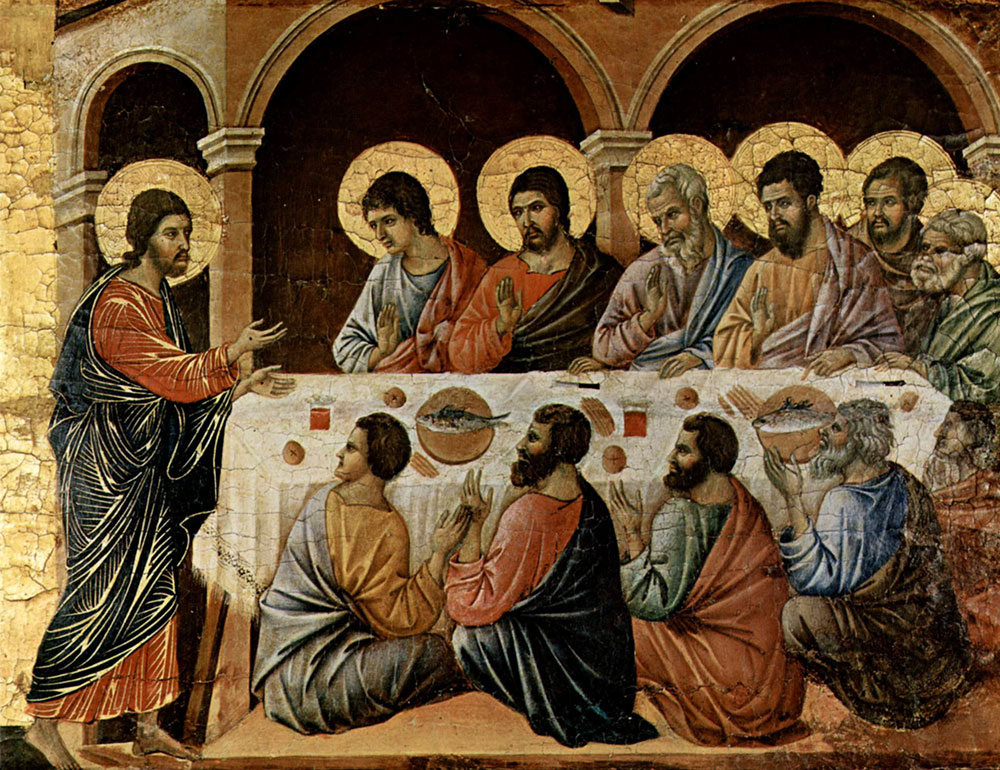Dear Brothers and Sisters in Christ,
Today’s readings from Isaiah, 1 Corinthians, and Luke convey a compelling theme that speaks to our human experience. Isaiah, Paul, and Peter, three significant personalities in Scripture, all expressed thoughts of inadequacy and unfitness to serve the Lord. Regardless of their feelings, God summoned, empowered, and transformed them to carry out their individual duties. As we ponder these readings, we find a common thread that connects them, and they are lessons for us to reflect on.
The Call of Isaiah
The prophet Isaiah’s summons to serve the Lord is a dramatic and uplifting story. Isaiah sees the Lord sitting on a throne, surrounded by seraphim and enveloped in smoke (Isaiah 6:1-4). This image of God’s holiness and majesty makes Isaiah feel completely inadequate and dirty. He exclaims, “Woe is me! I am lost because I am a man of dirty lips and dwell among unclean lips, but my eyes have seen the King, the Lord of hosts!” Isaiah 6:5. Isaiah’s response is a classic illustration of fearing the Lord, which is the foundation of wisdom (Proverbs 9:10). Despite his sense of inadequacy, Isaiah is eager to serve the Lord. The seraphim purifies him by touching his lips with a live coal and saying, “Your guilt has departed, and your sin has been blotted out” (Isaiah 6:7).
The Testimony of Paul:
St. Paul’s testimony in 1 Corinthians 15 is a striking confession of his own sense of inadequacy. Paul says, “For I am the least of the apostles, unfit to be called an apostle because I persecuted the church of God” (1 Corinthians 15:9). Despite his past faults and weaknesses, God has called Paul to be an apostle to the Gentiles. Paul responds to his summons with humility and thankfulness. He understands that his apostleship is founded not on his merits but on God’s favour and kindness. He states, “But by the grace of God I am what I am, and his grace towards me has not been in vain” (1 Corinthians 15:10).
The Call of Peter: The Gospel of Luke tells us the story of Peter’s call to discipleship. Peter, a good fisherman, had been fishing all night and hadn’t caught anything. Jesus, who was teaching the masses from Peter’s boat, told him to go out into the deep water and cast his net. Despite his initial doubt, Peter obeys, and the nets are full of fish (Luke 5:1-7). Peter responds to this miracle with astonishment and humility. He falls to his knees, exclaiming, “Go away from me, Lord, for I am a sinful man!” (Luke 5:8). Jesus responds by commanding Peter to follow him, stating, “Do not be afraid; from now on, you will be catching people” (Luke 5:10).
Common Thread: Feelings of Inadequacy.
Reflecting on these readings, we see a common thread that connects them. Isaiah, Paul, and Peter all shared thoughts of inadequacy and inability to serve the Lord. Regardless of their feelings, God summoned, empowered, and transformed them to carry out their individual duties. This shared inadequacy reflects our own human experience. We frequently feel inadequate and unqualified to serve the Lord. We may lack the ability, intelligence, or talent to make a difference. However, the stories of Isaiah, Paul, and Peter remind us that God qualifies those who are called. He is the God of abundance.
Reflecting on these readings, we can gain three significant lessons:
- God’s call is not based on our merits: God summoned Isaiah, Paul, and Peter despite their feelings of inadequacy. This serves as a reminder that God’s call is based on His grace and mercy rather than our merits.
- Humility is essential for service: Isaiah, Paul, and Peter all answered God’s call. This reminds us that humility is necessary for service because it permits us to acknowledge our reliance on God and our need for His guidance and empowerment. In a culture where leaders are expected to be confident and self-assured, the examples of Isaiah, Paul, and Peter highlight the value of humility in leadership.
- God empowers us for service: Despite their sense of inadequacy, God empowered Isaiah, Paul, and Peter to carry out their unique missions.
- The necessity of taking risks in our careers and personal lives: Despite his initial doubt, Peter’s decision to cast his nets into the deep ocean serves as a poignant reminder of the need to take risks in our careers and personal lives.
- The need to address our own sin and seek forgiveness: In a culture where sin and imperfection are frequently denied or minimised, the examples of Isaiah, Paul, and Peter highlight the significance of facing our own sinfulness and seeking God’s forgiveness and purity.
- The value of mercy and forgiveness in our relationships: Paul’s testimony in 1 Corinthians 15 emphasises the importance of mercy and forgiveness in our interactions with others.
- The need to believe in God’s plans and provision: The examples of Isaiah, Paul, and Peter emphasise the necessity of trusting in God’s plans and provision, even when we don’t understand what He’s doing.
Conclusion
Dear friends, remember that God’s call is based on His grace and mercy rather than our merits. Let us be willing to take risks, face our sinfulness, and seek God’s pardon and purification. Let us believe in God’s plans and provisions and be humble and merciful in our interactions with others. May we, like Isaiah, Paul, and Peter, be empowered by God to carry out our different duties. May we never forget that God’s mercy and forgiveness are available to all, regardless of our past faults or failings.






